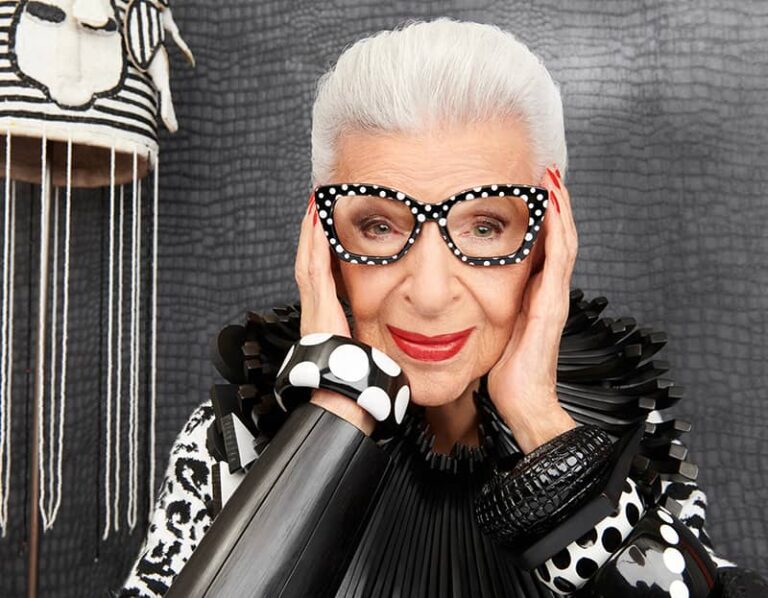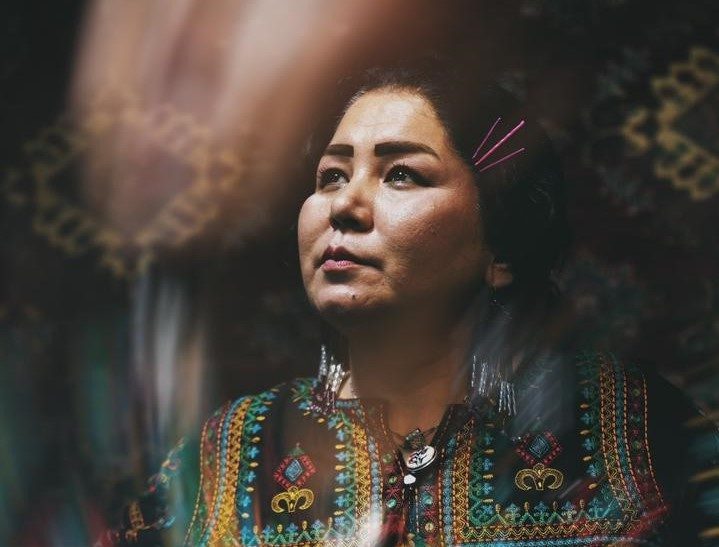Jodie Foster – 53, two-time Oscar-winner, Yale graduate and mother of two – is probably the celebrity most often cited by other movie stars as the actor they wish to emulate. Now presenting her fourth directorial effort, Money Monster, a fast-paced thriller starring George Clooney and Julia Roberts, Foster is back on the promotional trail – this time we meet in Los Angeles and then at Cannes Film Festival to discuss her latest movie. The story centres on a financial TV host and his producer who have lost control of the studio at the hands of an angry and desperate investor, played by Jack O’Connell (Unbroken). He has lost everything and has nothing to lose – so he takes over and instigates a standoff on live TV.
A lifetime on film
The last time Foster was in the spotlight was three years ago when she starred in the sci-fi epic Elysium, opposite Matt Damon.
“I’m not in the spotlight,” she says quickly. Trying to keep a low profile is a constant theme in her life, an understandable predicament considering she has maintained a presence in Hollywood for as long as she can remember. Actually, since before her earliest memories.
A childhood star who began working as a model at the age of three as the bare-bottomed Coppertone girl, Foster went on to work in TV as an actress in sitcoms such as Mayberry R.F.D. Her breakthrough role came at 14 in Taxi Driver – her portrayal of a child prostitute earned her first Academy award nomination. Foster worked consistently during her teens in movies including Bugsy Malone (1976); Freaky Friday, the same year; and Foxes (1980). And then she did the unthinkable, turning her back on Hollywood to complete a degree at Yale. Fame was not high on her agenda.
“I don’t measure myself by this external idea of ‘I am valuable because I’m famous,’ or, ‘I’m valuable because I have this money or this car or this job,’” she says.
But she certainly appreciates the commercial value of securing two of the largest tent-pole names in the business for Money Monster. “Yes, George and Julia are two of the most loved movie stars in Hollywood. And it was fun for them to be together. They love to work but they also love to laugh and keep it simple. It was a godsend to me that George is also a producer on the movie and to have such a talented director was a fantastic support and partner.”
On the subject of Clooney, who recently threatened his impending retirement from his work in front of the camera, she says: “I always caution people to stay away from big proclamations. They usually come back to haunt you at some point, but I hadn’t heard that about him.”
Clooney “didn’t want to grow grey as an actor”, or so he says. It’s a line of reasoning that clearly amuses Foster. “Really?” She laughs, leaning forward. “Um, he is already grey as an actor.”
In person, Foster holds a direct gaze throughout the conversation. Fiercely intelligent, there’s a palpable earnestness about her, though she smiles easily and more frequently than you might expect.
Early motivations
Born Alicia Christian Foster, she was nicknamed “Jodie” by her three older siblings. Their mother, Brandy, was abandoned by her husband, Lucius (who was sentenced to jail for five years for grand theft in a home-building scheme in 2011). Brandy was left to raise her children, helped by “Aunt Jo”, with whom she had a lesbian relationship. Brandy pushed Jodie into an acting career – and never stopped pushing. Consequently, mother and daughter had a complicated relationship, but Foster is currently her primary caregiver as Brandy suffers from dementia.
“Without a doubt my mom was the most important person in my life, of course. And without realising it, she lives in everything I do. And that bond to family, never abandoning people, I think was a big thing that she passed on to me.”
Her mother also passed on many burdens to Foster at an age when her peers would be going to parties and worrying about what to wear to the prom. Foster didn’t have that luxury. “I grew up always anxious about money, and maybe I shouldn’t have been, but I was a bread winner as a young person. That marked me a lot. I was completely anxious about it as a child; completely worried that if I didn’t get that job then my family wouldn’t be able to survive.”
In hindsight, her viewpoint has changed. “I feel in some ways it was a great motivator because I had to get straight As, I had to be a good student and at work I had to accomplish things. I had to have these goals because I didn’t want to feel insecure and anxiety ridden.
“And so it can be a motivator in some ways for you to live up to some sort of expectation that you have of yourself, but that is always hollow, because in the end, having an extra boat or having more money doesn’t change who you are.”
With many still recovering from the GFC, Money Monster is timely in its subject matter. Having had her own money anxieties, Foster ponders the notion of whether it’s better to have acquired and lost wealth rather than never topping the Forbes list.
“I don’t know that I have a big philosophy about it. Money Monster is not an indictment of capitalism. I believe in the system, it’s just that there are so many abuses. In terms of having it or not having it, I think it’s just a marker for people. And it’s almost primitive. If you are betting 25 cents, you get the adrenaline of the 25 cents and you see the 25 cents turn into 50 cents and a dollar and $2.50 and $3. But suddenly when you lose it all and you go back to 25 cents, you feel awful,” she says, animatedly.
“You feel like an idiot. But the truth is that you have the exact same amount of money that you had when you came in. Absolutely nothing has changed. I think it’s hope, really, that makes the difference. There is something external that will make you feel better, or make your life better if you have money.”
Lessons of adulthood
Life post-Yale saw Foster struggling to get back into movies once she had transitioned from child to an adult actor. Life changed when she was cast as a rape survivor in The Accused (1988) and followed with The Silence of the Lambs (1991) – both earned her an Oscar. She then stepped behind the camera and directed Little Man Tate (1991) and started a production company, Egg Pictures, in 1992, and directed Home for the Holidays (1995).
During this time she kept on acting in movies, including Maverick (1994) and Contact (1997) and also starred in Panic Room (2002), Flight Plan (2005), Inside Man (2006) and The Brave One (2007).
Foster took some time off to raise her sons – Charles “Charlie”, born in 1998, and Christopher “Kit”, born in 2001 – with her girlfriend Cydney Bernard, with whom she was in a relationship from 1993 to 2008. She married photographer Alexandra Hedison in 2014.
As a mother and a woman of enormous accomplishments, she talks about the attitudes she would like her sons to inherit. “If there is one thing I hope I pass on to them when I’m gone, I hope they remember that I will have no expectations from the grave. There are no accomplishments they have to achieve by the time they’re 30. My greatest expectation for them is that when faced with a dilemma they remember to always try to do the right thing. And it’s that ethical quandary, isn’t it? How do we do the right thing? Is it the right thing to give somebody money on the street who is begging?”
She pauses. “It isn’t. You’re encouraging people to stand on the street and not get a job whereas maybe it would be better to give it to an organisation that allowed them to find jobs. There is an ethical procedure of asking yourself that question: ‘What is the right thing?’
“It’s a muscle that I hope I have instilled in my kids. We get The New York Times on Sunday and we go to The Ethicist questions every week and I sit with my kids and ask them questions, so that muscle is always being utilised.”
As a parent, can she see her efforts paying off? “Yes.” She nods. “The good news is that I feel my kids are already themselves. They are on their way. They are both just great guys. I trust them and I feel like they have a really high moral standard.”
Looking forward
Are there less philosophical life lessons she tries to instil? She laughs. “You want to say things like: ‘You must never wear a T-shirt to dinner’ or, ‘You must always have a collared shirt’ or, ‘You must write thank you notes.’” She smiles.
“But time goes on and they start talking with their mouth full and there’s nothing you can do,” she shrugs. “You let some things go and you realise that maybe when they’re 30 and their wife tells them they need to wear a collared shirt, they will.”
Foster remains one of the few female directors in Hollywood though her attitudes are clearly not based on her gender. “Hopefully there will be more female directors and I look forward to a time when we don’t have to have these conversations any more. I always say that the best female director I have worked with is Jonathan Demme (Silence of the Lambs). He has a feminine sensibility and he is a mom figure,” she says. “He is somebody I would run to for a film about feelings, whereas Katherine Bigelow (The Hurt Locker) has proved to be an extraordinary male action-driven filmmaker.”
Foster and her family reside in Los Angeles, the city in which she was born. She is not one for acquiring material possessions. “I don’t really collect anything. I love art and photography and that’s what I would run to save if my house was falling down. But I am not much of a possession person and I don’t really care about things that I own. The older I get, the less I care,” she explains.
“I like to have a home that feels comfortable and I really like beautiful things, like sheets that feel good. Actually, I like the freedom of not having things. That’s of more interest to me than the burden of having things.”
For all her extensive litany of accolades, the achievements Foster is most proud of are ethereal. “We are always looking for proof – an Oscar statuette or a pile of money – but the things that are most meaningful to me are like dust. They are things I don’t have any pictures of. It’s those spontaneous experiences that you share with somebody – whether it’s the relationship with your children or going through the death of somebody you love. It’s nothing tangible; I don’t have any proof to show you: ‘Look, this is what I did!’”
In a culture where everything is documented on Instagram, Facebook and Twitter, Foster is a rare character indeed.







